-
 Injury keeping you out of the game?Our experts will get to the core of your fitness needs.OUR SERVICES
Injury keeping you out of the game?Our experts will get to the core of your fitness needs.OUR SERVICES -
 GET BACK TO THE ACTIVITIES YOU LOVEOUR SERVICES
GET BACK TO THE ACTIVITIES YOU LOVEOUR SERVICES -
 RESTORING YOUR PHYSICAL ABILITYOUR SERVICES
RESTORING YOUR PHYSICAL ABILITYOUR SERVICES -
 RESTORING YOUR QUALITY OF LIFEOUR SERVICES
RESTORING YOUR QUALITY OF LIFEOUR SERVICES -
 EVIDENCE BASED PRACTICEOUR SERVICES
EVIDENCE BASED PRACTICEOUR SERVICES -
 APPROPRIATE PROGRAM FOR A SUCCESSFUL RECOVERYOUR SERVICES
APPROPRIATE PROGRAM FOR A SUCCESSFUL RECOVERYOUR SERVICES -
 HELPING YOU ACHIEVE YOUR GOALSOUR SERVICES
HELPING YOU ACHIEVE YOUR GOALSOUR SERVICES
Services
Orthopedic Rehabilitation
Orthopaedics is a medical specialty concerned with the correction and treatment of functional impairments of the musculoskeletal system. The musculoskeletal system gives us form, stability and movements and it includes bones, muscles, cartilage, tendons, ligaments, joints, nerves and other connective tissues. Damage to these structures may potentially lead to an orthopedic surgery; however, Progressive Therapeutics offers non-surgical treatment options for many orthopedic problems.

Orthopaedic rehabilitation is a form of therapy that treats a wide variety of conditions affecting the musculoskeletal system and is a cornerstone of the programs and services we provide at Progressive Therapeutics.
As orthopedic specialists, we use research-based manual therapy techniques and a team approach to give our patients the best outcomes. We supplement your care with the most modern modalities.
We provide evidence-based treatment that can help you to achieve your unique goals and full functional recovery following surgery or injury. Our team offers intensive, targeted rehabilitation
Conditions We Treat
Contact UsSpine Rehabilitation
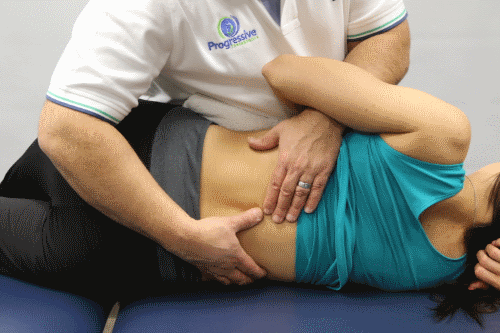
Spinal rehabilitation refers to problems with your neck or back. It is a subspecialty of orthopedics and should be treated as such. Because of the unique structure of the spine and special problems related to this area, specialized training is necessary to ensure appropriate treatment.
Because the majority of problems are mechanical, relating to specific activities, postures, and habits of the patient’s life style, a mechanical solution is necessary.
Progressive Therapeutics is proud to consist of physical therapists that have undergone extensive training in principles of spinal and sacroiliac rehabilitation from organizations such as the McKenzie Institute and the North American Institute of Orthopedic Manual Therapy. A thorough evaluation will be performed to identify movements, positions, and activities that aggravate the condition as well as those that will decrease symptoms. Emphasis is on active self-treatment in which the patient plays a vital role.
Our therapists are highly trained in spinal mobilization and treatment techniques which help in the recovery of spine related disorders. We emphasize education to our clients to both facilitate recovery and reduce the likelihood of re-injury.
Conditions We Treat
Contact UsSports Injury Rehabilitation
Our Sports Rehabilitation model is based on a thorough biomechanical evaluation and a therapeutic treatment program of manual therapy with emphasis on exercise. A progressive exercise approach, along with joint and soft-tissue mobilization, is the key for a rapid return to work or an active lifestyle.
Progressive Therapeutics has the ability to combine state of the art equipment with sport specific training principles to not only return athletes to competition, but provide injury prevention and performance enhancement programs.

Whether you are an elite athlete or a weekend warrior, you can benefit from our Performance Assessment. Physical therapists are the experts in structural and functional biomechanics, making your PT the perfect addition to your training team. Your assessment will review what activities/sports you partake in and will help you uncover how to prevent sport-specific injuries to reach your performance goals. Never miss a season due to an untimely injury again.
Based on this annual Performance Assessment, we will work with you to develop a Performance Plan specific to your activities and goals.
Conditions We Treat
Contact UsWork Injury Rehabilitation
Comprehensive Injury Management for Business and Industry
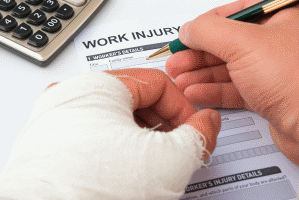
At Progressive Therapeutics, we understand that injured employees decrease productivity and increase worker’s compensation costs. We also recognize that a positive relationship between industry and medicine is critical in today’s worker’s compensation arena. So, we’ve developed a comprehensive injury management program that helps prevent injuries, evaluates and trains employees, and quickly and safely returns injured employees back to work.
Program Components
Our Return to Work and Injury Management program consists of four components:
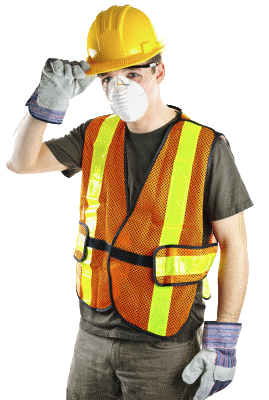
Progressive Therapeutics provides a wide range of injury management services, manual handling training and ergonomic solutions to Indiana and Illinois companies. If you are motivated to prevent injuries and achieve fast return to work outcomes, then our specialist teams of injury management advisors can assist by administering a functional capacity evaluation, developing a suitable duties plan, check your workstation set up with an ergonomic assessment or work with groups of staff to provide manual handling training. Preventing injuries is the key to the success of our program, and we offer a variety of services designed to make the workplace safer.
We understand that better management of return to work after an injury is linked with less time off work, resulting in lower human and economic costs to workers and employers. Progressive Therapeutics Injury Management Services can also assist organizations to prevent workplace injuries through one on one education, ergonomic assessment, group manual handling training and risk assessments.
Our injury management team succeeds in achieving sustainable return to work outcomes even when serious injury prevents return to work in a pre-injury role. Ask us today about our extensive range of career transition programs and job search training.
We achieve proactive and sustainable return to work results by completing manual handling training, worksite assessment, and return to work coordinator services.
A Functional Capacity Evaluation (FCE) is an objective test that measures a person’s capacity to perform work-related tasks such as lifting, pushing, and pulling. Our expert at Progressive Therapeutics are certified to provide FCEs using the internationally recognized OCCUPRO work system and experiencing in providing an objective and accurate evaluation of an individual’s ability to perform essential work functions. It is an important tool to assist employers, physicians, insurance companies and case managers to determine safe functional levels for an individual to either return to work or to establish residual functional ability. FCEs can also be performed before and after work conditioning programs to track progress.
Why would one use a Functional Capacity Evaluation?
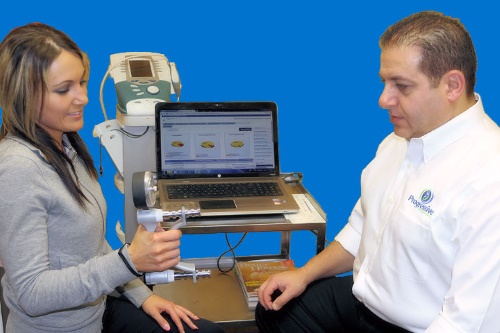
Functional Capacity Evaluation (FCE) is used by physicians, case managers, and employers to transition injured workers from disability to function and employment. FCE is the single most reliable measure to determine if a successful return-to-work is possible - as it is inherently a thorough and accurate evaluation process that documents an individual's residual physical abilities, level of effort expended during testing, reliability of reports of pain and limitation, and it is an overall gauge of feasibility for employment. Functional Capacity Evaluations are used for a variety of reasons. One can use an FCE to develop a treatment program, to measure the physical abilities of patients before and after a rehabilitation program, to modify a rehabilitation treatment, to evaluate whether an injured worker can work, and to determine when he/she can return to work.
What does a functional capacity evaluation test consist of?
A series of tests measuring physical strength, "range of motion", stamina, and tolerance to functional activities, including lifting and carrying. These tests can be used to evaluate work tolerance, and the necessity for work restrictions. Related terms include ''Physical Capacities Evaluation'' (''PCE'') or Functional Capacity Assessment (FCA) or Work Capacity Evaluation. An evaluator skilled in Functional Capacity Evaluation will use a battery of standardized tests, designed around key factors that include diagnosis, impairment, pain and functional limitation, referral questions, and, in some instances, the case resolution goal. FCE's value to the injured individual is the focus on functional ability instead of the pain limitation associated with impairment. It considers speed, flexibility, endurance, skill and strength through the use of functional testing, MTM, and standardized measurements to assess job-fit status. Functional Capacity Evaluation is not only a useful clinical tool, but a baseline for industry-standard results that clearly define an individual's transition from injury to employment, and from disability to deployment.
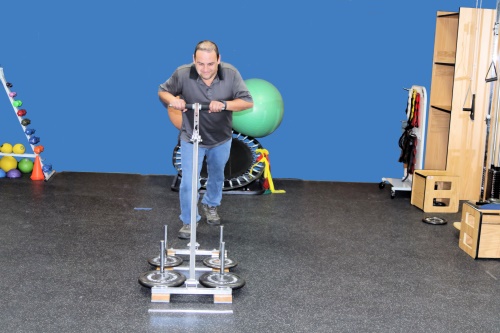
When injured workers meet established short- and long-term goals via physical therapy or hand/occupational therapy but are unable to return to work due to remaining functional deficits or deconditioning, they may benefit from a higher level of therapeutic intervention designed specifically with a primary goal of returning to work. Injured workers who benefit most from these programs are usually at least 30 days out from their injury and have a medium or higher physical demand category job to return to. These are full body intensive conditioning programs that focus on work simulation activities to get injured workers back to work.
What is Work Conditioning Evaluation?
Work conditioning is an intensive, goal-oriented treatment program specifically designed to restore an individual’s systematic, neurological, musculoskeletal (strength, endurance, movement, flexibility, and motor control), and cardiopulmonary functions.
The objective of the Work Conditioning program is to restore the client’s physical capacity and function to the extent that the client can return to work.
What is Work Hardening Evaluation?
Upon an employee’s entry to the Work Hardening Program, he or she receives a work capacity evaluation to compare abilities to the current job description.
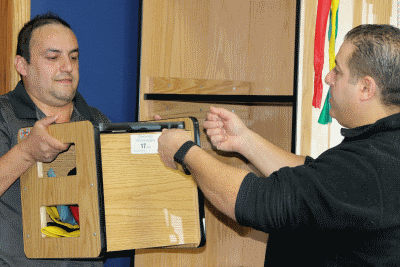
In addition to this assessment, the clinic offers a structured Work Hardening programs which interdisciplinary in nature and use conditioning tasks that are graded to progressively improve the biomechanical, neuromuscular, cardiovascular, metabolic and psychosocial functions of the individual in conjunction with real or simulated work activities.
Workers attend four hours per day, three days per week. During this intense reconditioning and body-retraining program, workers perform real job activities, ranging from that of the sedentary office clerk, to the heavy labor of a construction worker. This environment allows employees to safely ramp back up to their job, providing them with the confidence they need to return to work.
Work hardening provides a transition between acute care and return to work while addressing the issue of productivity, safety, physical tolerances and work behaviors.
Work hardening is highly structured, goal oriented, individualized treatment program designed to maximize the individual’s ability to return to work.
Progressive Therapeutics has trained professionals to perform Work Hardening & Work Conditioning Evaluations.
Total Joint Rehabilitation
When a surgeon replaces a joint, you’re only part of the way toward your goal of relieving your pain. The next step is to restore range of motion in the joint and build a strong, sturdy supportive musculature system around that new joint. That’s where physical therapy comes in.
The first physical therapy session typically happens the day after surgery, while you’re still in the hospital. Your therapist will help you walk with your new joint. The type of surgery you’ve had will determine how much weight you can put on your hip or your knee.
Your physical therapist can also suggest devices to insure safety at home, such as a shower seat, a raised toilet seat, grip bars and a long-handled shoehorn. You will be also instructed and advised on safety and joint protection to protect your new joint from dislocation, and may be how to use a CPM machine, this mean you will follow up with a physical therapist at home.
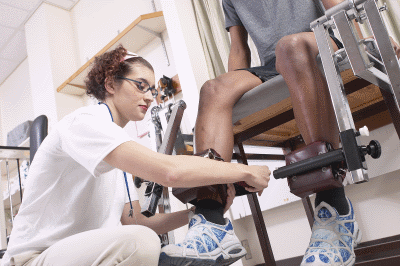
Therapist will teach you how to get in and out of the car, how to walk up and down the stairs and how to get in and out of the bathtub and even how to tie your shoes without damaging your new joint. Therapist will initiate gentle range of motion exercise to increase flexibility, static and dynamic strengthening exercises and gait training using specific techniques following your physician protocol to allow you to walk smoothly and without pain. They will work with you on controlling swelling and decreasing pain using ice packs and monitor your pain level as well as any possibility of blood clots or incision or wound problem and reported to your doctor.
After few weeks of home therapy you will start out patient rehab with more aggressive therapy to restore your joint range of motion and maximize your strength and stability using state of the art-equipment in our facility.
The physical therapists at Progressive Therapeutics are familiar with the rehabilitation protocols of orthopedic surgeons from the surrounding regions.
Whether you are a golfer, a runner, or a mechanic, our therapists will get you on a treatment plan that will get you back in the game
Contact UsNeurological Rehabilitation
We at Progressive Therapeutics our goal for stroke victims are to achieve the highest functional potential for return to work, life, and play. We offer neurologic rehabilitation related to a variety of nervous system conditions; our specialty trained, interdisciplinary team of therapists assesses each patient’s condition; setting appropriate goals and developing an individualized plan and home treatment program.
The team works together to coordinate care among physical, occupational and speech therapies to enhance the patient’s maximum functional potential.
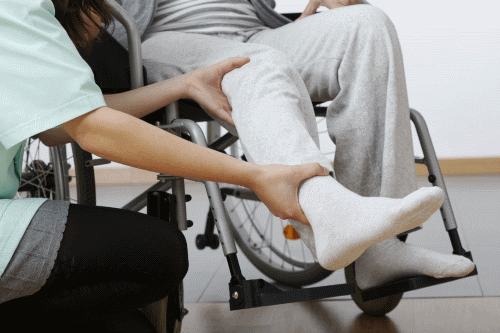
Our team strives to maximize a person’s return to functional independence and an active and healthy lifestyle post-neurological injury.
There is only a 6-12 month opportunity for newly diagnosed stroke patients to regain strength. Don’t let your problem get to the point of no return. Call and schedule an appointment today.
Conditions We Treat
Contact UsSpeciality Services
Click on each button to get more details about the various programs we provide services for
Our cancer rehabilitation program is uplifting physically, spiritually and emotionally. Programs are individually designed to minimize challenges and maximize functional abilities and accomplishments. If you are a cancer survivor, studies indicate that the following likely apply to you:

- You are significantly less active than prior to your diagnosis
- You have gained weight
- You have pain as a result of treatment
- You have more “blue” days
- You are less flexible
- You do not participate in regular exercise
Our cancer rehabilitation program has been developed by Physical & Occupational Therapists with input from actual cancer patients and their caregivers. We understand you are going through a lot. We will go at a pace that is tailored to each clients individual needs.
Research studies have shown that physical therapy and exercise can help patients during and after cancer treatment to:
- Improve cardiovascular health and fitness
- Increase strength, lean body mass, flexibility and endurance
- Decrease fatigue, Boost Tolerance to Chemotherapy
- Decrease risk of osteoporosis
- Maximize healing by providing expert post-operative care
- Improve joint motion
- Restore balance
- Improve body mechanics in order to perform household/work tasks (such as lifting) safely and correctly
- Return to full involvement in home, work, social and recreational activities
- Boost your immune system

At Progressive Therapeutics we understand that women body has special needs and conditions. During pregnancy the pelvic floor muscles, abdominal muscles and other connective tissues will over stretched causing back pain, weakness, and instability of the core along with hormonal changes, instability and pelvic floor dysfunction can lead to urinary and/or bowel incontinence and pelvic pain.
We providing one-on-one care and customized treatment programs in a discreet and comfortable environment, we coordinate your treatments with your physician to ensure you achieve your goals.
Let our expert physical therapist evaluate your condition and discuss treatment options with you.
Conditions We Treat
- Pelvic pain
- Back pain, sciatica and pelvic pain during or after pregnancy
- Weakened core strength or discomfort following delivery
- Sciatica
- Constipation
- Defecatory dysfunction including fecal incontinence and pelvic organ prolapsed stress and urge incontinence
- Frequent urination
- Loss of bowel/bladder control when coughing, laughing or sneezing
- Adhesion and scar tissue release post-hysterectomy
- Discomfort during or following sexual intimacy
- Sacroiliac dysfunction
- Coccydynia
- Piriformis syndrome
- Carpal tunnel syndrome
What is peripheral neuropathy?
Peripheral neuropathy (PN) is a sneaky, potentially disabling epidemic condition affecting the nerves of the body that results from nerve damage or disease leads to alterations in sensation and movement and can cause pain.
Peripheral neuropathy is a tricky condition and can have a number of causes, and some of those causes usually aren’t even in the area where you are experiencing numbness, tingling, burning, or “weird” sensations! Because many doctors don’t know where these places are, they assume that since your symptoms are in your legs or feet, the problem is solely in that area.
What Causes Peripheral Neuropathy?
Peripheral neuropathy is usually caused by changes in the nerve endings, thus affecting sensation and producing symptoms like numbness, tingling, burning, and so forth. There are multiple factors that can affect nerve endings. Some of them you are likely already familiar with…like…
- Diabetes
- Chemotherapy
- Radiation
- Side effects from medications (e.g. statins: Lipitor, Zocor, Simvastatin, etc)
- Trauma
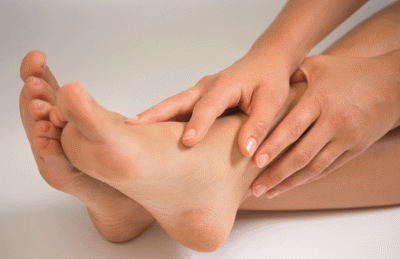
There are still other causes that likely have never heard of. For instance, an over-firing (over activity) of the upper brainstem. There are also unknown causes for peripheral neuropathy. Either way, the end result is a change in the sensory fibers of peripheral nerves. Some conditions can even mimic peripheral neuropathy most commonly, a pinched nerve in the back.
Our expert neuropathic specialist will develop a personalized care plan with specific goals. Client will be examined and tested and Thorough history taking including Observation of skin color, integrity, temperature, Presence of pressure points, Strength testing , ROM/flexibility testing, Neurological testing, Reflexes, Sensation, Proprioception, Balance/coordination, Foot wear assessment and Sensation Testing.
The goal of Physical Therapy is to improve your overall quality of life, improve and maintain functions that may be limited by Peripheral neuropathy.
Treatment will include range of motion exercise, moderate intensity strengthening training, balance and coordination activities to improve safety and decrease risk of falling, nerve gliding activities to improve nerve movements and vitality, Aerobic conditioning, gait training, Monochromatic infrared energy, and patient education.
As you can see, it is VERY important to check for these underlying and often hidden causes so that you get the proper treatment.
So if you want to experience that relief as soon as possible, call our office and schedule a time to come in so we can discuss your condition.
Many people experience issues with balance at some point in their lives. Regardless of the reason, whether that is from dizziness, vertigo, or other inner ear disorders, the majority of imbalance conditions can be helped through physical therapy - lowering the risk of dangerous falls.
Our specialized vestibular rehab and balance programs have been shown to effectively reduce complaints of vertigo.

We have developed an extensive treatment program to serve those experiencing balance difficulties and fear of falling. Poor balance can lead to an increased risk of falling. Among the elderly, falls are one of the more serious health concerns.
First, the factors affecting your balance will be measured and discussed with your physical therapist. Our therapeutic exercise program targets all of the components of the physiological system that control balance includes but not limited to the visual, vestibular, somato-sensory, and musculoskeletal systems.
We have the latest equipment available, such as: the Physioball, Bosu, Foam Roller and Foam Mat, and many others. Your exercise program is tailored to your specific needs.
Progressive Therapeutics Balance Training Program will improve your balance, reduce your risk of falls, and make a major difference in your quality of life. Call us for more info.
